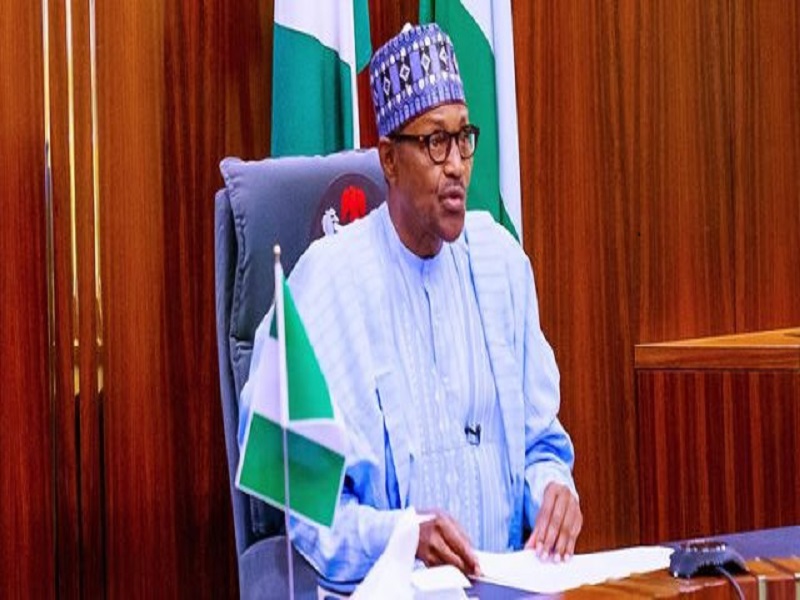Socio-Economic Rights and Accountability Project, SERAP, has sued President Muhammadu Buhari over the failure to unblock the phone lines of over 72 million telecommunication subscribers barred from making calls on their Subscriber Identity Modules, SIMs.
The suit followed the recent directive by the Federal Government to telecommunications companies to block outgoing calls on all unlinked lines, as the deadline for the verification expired on March 31.
Following the directive, over 72 million subscribers have now been barred from making calls.
In the suit filed on behalf of SERAP by its lawyers, Kolawole Oluwadare and Opeyemi Owolabi, at the Federal High Court in Lagos, the organization asked for; “an order setting aside the directive by President Buhari to telecommunications companies to block outgoing calls on all unlinked lines without due process of law, and for being inconsistent with the requirements of legality, necessity and proportionality.”
Joined in the suit as respondents are: Mr Abubakar Malami(SAN), Attorney General of the Federation and Minister of Justice, and Mr. Isa Pantami, Minister of Communications and Digital Economy.
SERAP also demanded for “an order of perpetual injunction restraining President Buhari and the Minister of Communication and Digital Economy, Isa Pantami from unlawfully directing telecommunications companies to block outgoing calls on all unlinked lines, without due process and in violation of Nigerians’ human rights.”
SERAP further sought “an order directing and compelling President Buhari to ensure adequate infrastructure and logistics to allow Nigerians including persons with disabilities, older persons, and persons living in remote areas, to capture their data and conclude registration to obtain National Identity Number (NIN).”
The organization stressed that, “directing and compelling the Federal Government to unblock the phone lines unlawfully barred would be entirely consistent with the Nigerian Constitution 1999 [as amended], and the country’s international obligations to respect, protect, and promote socio-economic rights.”
SERAP also maintained that, “Where agencies of government are allowed to operate at large and at their whims and caprices in the guise of performing their statutory duties, the end result will be anarchy, and authoritarianism, leading to the loss of the much cherished and constitutionally guaranteed freedom and liberty.”
According to SERAP, “It is in the interest of justice to grant this application.
“Access to telecommunications services is a condition sine qua non for the effective exercise of human rights. Therefore, the decision to block people from making calls is discriminatory, and a travesty.
“The blocking of phone lines of Nigerians without due process of law has disproportionately affected those on the margins of society.
“This has resulted in the discrimination of marginalized or vulnerable groups.”
The suit filed read in part: “While Nigerian authorities have a legal responsibility to protect, ensure and secure the rights to life and property, any such responsibility ought to be discharged in conformity with human rights standards.
“Fundamental rights are regarded as part of human rights and are protected to enhance human dignity and liberty.”
“Unblocking the phone lines unlawfully barred from making calls would improve respect for the rule of law, and ensure people’s right to freedom of expression, and access to information, as well as their right to associate with others.”
“The blocking of people from making calls constitutes impermissible restrictions on the rights to freedom of expression, information, and association.
“The decision to block the phone lines also appears to be arbitrary, and lacks any legal framework, independent and judicial oversight.
“This may allow authorities to act in an unfettered and potentially arbitrary or unlawful manner.
“Under international human rights law, States including Nigeria ‘shall not engage in or condone any disruption of access to digital technologies for segments of the public or an entire population.’
“States must refrain from cutting off access to telecommunications services.
“Millions of Nigerians including persons with disabilities, elderly citizens, persons living in remote areas have been unable to capture their biometrics, and obtain their NINs due to logistical challenges, administrative and bureaucratic burdens, as well as the persistent collapse of the national grid.
“The rights to freedom of expression, access to information, and freedom of association, whether offline or online, promote the democratic ideal by allowing citizens to voice their concerns, challenge governmental institutions, and hold the government accountable for its actions.”
![]()






























































